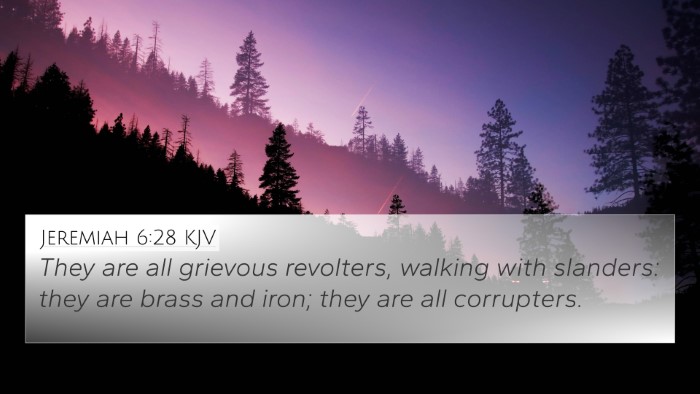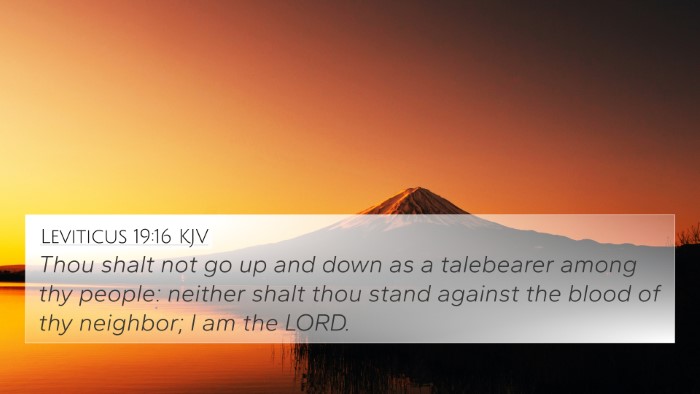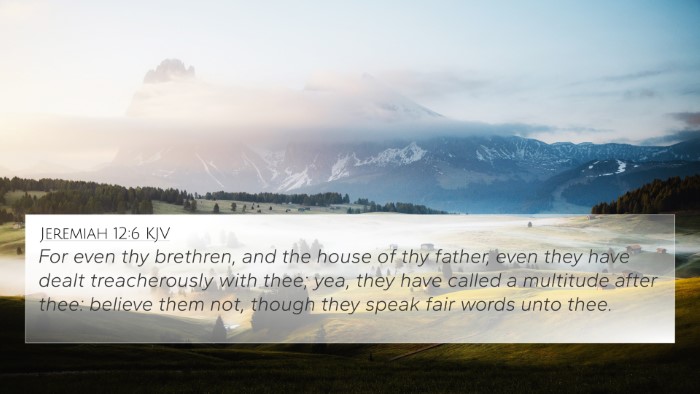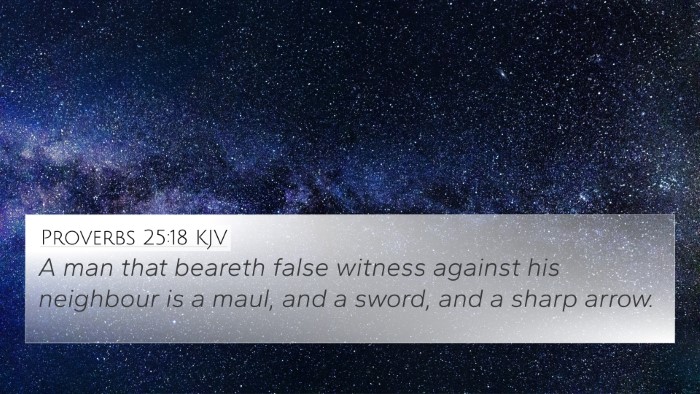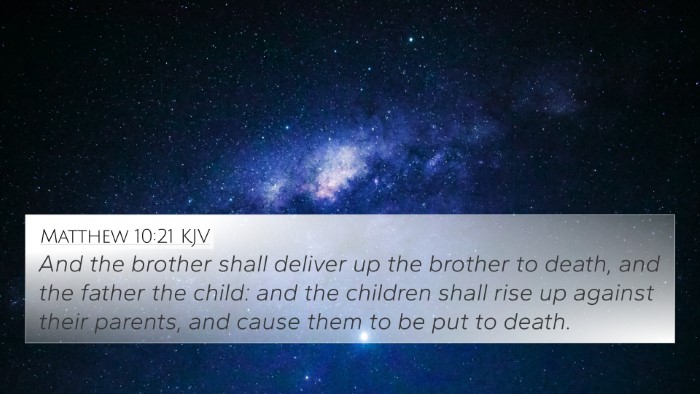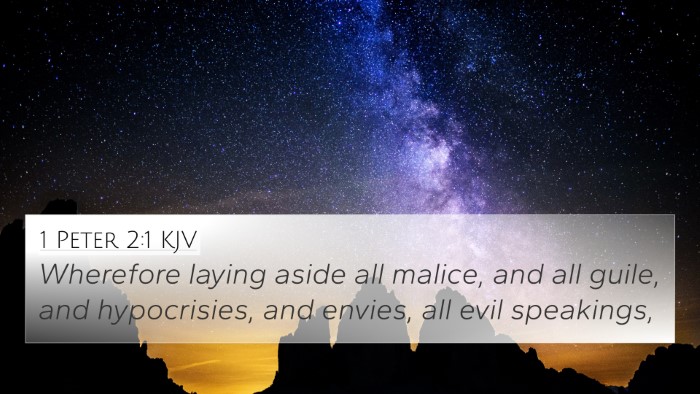Understanding Jeremiah 9:4
In Jeremiah 9:4, the prophet Jeremiah expresses a solemn warning to the people of Judah regarding the pervasive deceit and treachery that had become prevalent among them. This verse serves as a reflection on the moral decay that had taken root in society, highlighting the need for vigilance and integrity.
Verse Context
This verse is part of a broader passage where Jeremiah laments the corrupted state of Israel and cautions against placing trust in people rather than God. He calls attention to the deceptive nature of humanity, particularly those close to us.
Commentary Insights
- Matthew Henry's Commentary:
Henry emphasizes the dangers of placing trust in man. He notes the social fabric of the community is fraying, and individuals deceive and betray one another incessantly. Jeremiah's observation serves as a profound warning about the human heart's inclination toward wickedness. He underlines the importance of understanding the limitations and fallibility of human relationships.
- Albert Barnes' Notes:
Barnes elucidates the idea that the deceit among brethren leads to widespread moral corruption. He suggests that this verse encapsulates a spiritual truth about reliance on flesh as opposed to faith in God. The lack of trustworthiness among people is seen as a sign of judgment upon the nation, which has strayed from divine guidance.
- Adam Clarke's Commentary:
Clarke focuses on the relational dynamics described in this verse, indicating that friendship and kinship are increasingly marred by disloyalty. He provides insights into how interpersonal relationships can reflect a deeper spiritual malaise akin to forsaking God’s commandments. He warns against the pervasive nature of betrayal, insinuating that true wisdom lies in recognizing the fallen nature of man.
Thematic Bible Verse Connections
Jeremiah 9:4 provides a gateway to exploring several significant thematic connections throughout Scripture:
- Proverbs 25:19: "Like a bad tooth or a lame foot is reliance on the unfaithful in a time of trouble." This verse parallels the warning against trust in those who are unreliable.
- Psalm 55:12-14: "If an enemy were insulting me, I could endure it; if a foe were raising himself against me, I could hide from him. But it is you, a man like myself, my companion, my close friend..." This reflects the pain of betrayal by close relations.
- Micah 7:5-6: "Do not trust a neighbor; put no confidence in a friend. Even with the woman who lies in your embrace guard the words of your lips." This highlights the depth of betrayal as seen in Jeremiah's context.
- Jeremiah 17:5: "Cursed is the one who trusts in man, who depends on flesh for his strength and whose heart turns away from the Lord." This verse directly supports Jeremiah's admonition on dependence on human beings.
- Isaiah 31:1: "Woe to those who go down to Egypt for help..." indicates the folly of seeking human assistance rather than divine intervention.
- John 2:24-25: "But Jesus would not entrust himself to them, for he knew all people. He did not need any testimony about mankind, for he knew what was in each person." Reflecting the understanding of human nature and trust issues.
- Romans 3:10: "As it is written: ‘There is no one righteous, not even one...’" This establishes the fallen state of humanity across the board, providing a theological foundation for Jeremiah's lament.
Cross-Referencing Biblical Texts
Cross-referencing Jeremiah 9:4 with the above verses establishes a deeper understanding of the pervasive sinfulness of man and warns believers to put their trust in God alone, rather than in people.
Tools for Bible Cross-Referencing
Several resources can enhance your study of Bible verse parallels and cross-referencing:
- Bible Concordance: A valuable tool for finding related verses by keyword.
- Bible Cross-Reference Guide: Guides that offer insights into connections between verses.
- Bible Chain References: Systems that link related verses iteratively, facilitating study.
- Comprehensive Bible Cross-Reference Materials: Resources to deepen understanding through thematic study.
Conclusion
Jeremiah 9:4 serves as a poignant reminder of the fallen nature of humanity and the imperative need for integrity, honesty, and reliance on God. Through comparative Bible verse analysis and thematic connections, we can grasp the fullness of the message delivered by Jeremiah, encouraging us to avoid placing our trust in human beings, but rather to seek our strength and assurance in the Lord.




